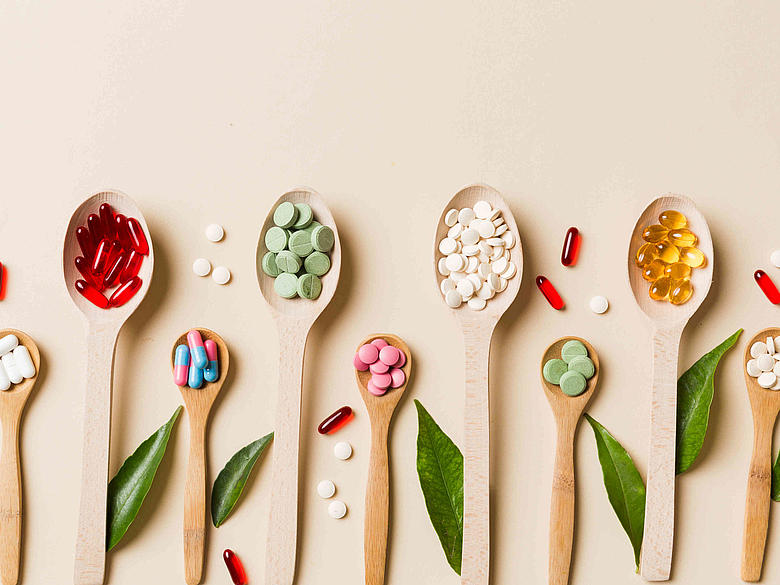Vitamins are essential nutrients that our bodies require to function properly. While a balanced diet can provide us with most of the vitamins we need, there are certain vitamins that are especially important for physical health. Now, whilst there is certainly important vitamins for women to take and you might be wondering what the most important vitamins for men, for the purpose of this article, we’re going to look at important vitamins to take daily overall.
In this article, we'll discuss 5 of the most important vitamins for physical health, and how to ensure you're getting enough of them in your diet.
So, what are the most important vitamins?
- Vitamin D: Vitamin D is essential for maintaining healthy bones, as it helps our bodies absorb calcium. It also plays a role in immune function and may help reduce the risk of certain diseases, including multiple sclerosis and heart disease. While our bodies can produce vitamin D when we're exposed to sunlight, many people don't get enough through sunlight alone. Foods that are high in vitamin D include fatty fish, eggs, and fortified dairy products. Read on for more benefits on vitamin D here.
- Vitamin C: Vitamin C is a powerful antioxidant that helps protect our cells from damage caused by free radicals. It also plays a role in immune function and collagen synthesis, which is important for healthy skin and joints. While vitamin C is found in many fruits and vegetables, some of the best sources include citrus fruits, berries, and leafy greens.
- Vitamin B12: Vitamin B12 is important for maintaining healthy nerve and blood cells, as well as producing DNA. It's also essential for energy metabolism and can help reduce the risk of certain diseases, including dementia and heart disease. While vitamin B12 is found in animal products, such as meat, fish, and dairy, it can be difficult for vegetarians and vegans to get enough through their diet alone. In these cases, a B12 supplement may be necessary.
- Vitamin E: Vitamin E is another antioxidant that helps protect our cells from damage. It's also important for immune function and may help reduce the risk of certain diseases, including Alzheimer's and cancer. While vitamin E is found in many foods, including nuts, seeds, and leafy greens, it can be difficult to get enough through diet alone. In some cases, a supplement may be necessary.
- Vitamin A: Vitamin A is important for maintaining healthy vision, as well as skin and immune function. It's also important for reproductive health and foetal development. While vitamin A is found in many animal products, such as liver and dairy, it can also be found in plant-based foods, such as sweet potatoes and carrots.
While a balanced diet can provide us with many of the vitamins we need, it can be difficult to get enough of certain vitamins through diet alone. If you're struggling to get enough of these essential vitamins, it may be worth considering a supplement. The vitamins discussed in this article would be some of the most important vitamins to supplement if diet alone does not suffice.
If you're interested in improving your physical health through a combination of proper nutrition and exercise, Vision Personal Training can help. Our team of expert trainers can work with you to develop a personalized fitness plan that is tailored to your unique needs and goals. Whether you're just starting out on your fitness journey or looking to take your workouts to the next level, we're here to help. Contact us today for your complimentary consultation.

